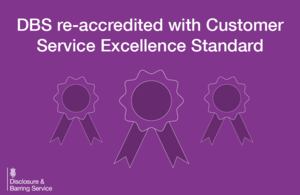Joint statement by the Governments of UK and Colombia on mobilising climate finance in Colombia through the Partnership for Sustainable Growth
Today the UK’s COP26 President, Alok Sharma, met with Colombia’s President, Iván Duque, to discuss the importance of mobilising climate finance at scale to accelerate Colombia’s transition to a green future.
On the occasion of the President’s visit to the UK, both governments celebrated our successful collaboration in addressing climate change and protecting Colombia’s incredible natural resources through the UK-Colombia Partnership for Sustainable Growth. They welcomed the launch of three new initiatives that will continue to build on this legacy and accelerate progress. These initiatives will bring together the public and private sectors, helping to mobilise finance to support emissions reductions, sustainable growth and the protection of biodiversity in Colombia.
These initiatives build on a long history of collaboration and mutual ambition in addressing climate change, which both countries demonstrated at COP26 in Glasgow through ambitious new commitments. Through our successful Partnership, the UK and Colombia have shown how collaboration is key to meet the goals of the Paris Agreement. Through its continued commitment to high ambition and to the Glasgow Climate Pact, Colombia is setting an example to the region and to the world. These new joint initiatives announced today are important tools that will help to turn ambition into action.
UK Partnering for Accelerated Climate Transitions (UK PACT)
The UK and Colombia welcomed the launch of 19 new and extended projects worth £7.8m through UK PACT. These transformational and innovative projects will support Colombia’s climate action priorities, with a focus on implementing and promoting nature-based solutions to climate change. Four new projects will focus on cementing a nature-positive approach, while supporting Colombia to meet its ambitious climate commitments to cut greenhouse gas emissions by 51% by 2030 and to reach net-zero emissions by 2050. Meanwhile, 15 extended projects under the existing portfolio will continue to drive forward progress on the energy, transport, green finance, nature and climate policy agendas, helping to unlock further finance and ensure transformational impact.
Climate Finance Leadership Initiative Colombia
The two governments also welcomed the launch of the Climate Finance Leadership Initiative (CFLI) Colombia. Led by UN Special Envoy for Climate Ambition and Solutions, Michael Bloomberg, the CFLI convenes leading companies to mobilise and scale private capital for climate solutions. In Colombia, the CFLI co-chairs, Juan Carlos Mora Uribe, CEO of Bancolombia, and Mario Pardo Bayona, CEO of BBVA Colombia, will work with domestic and international financial sector leaders to rapidly accelerate private climate finance flows in support of Colombia’s Nationally Determined Contribution (NDC). These private sector organizations form the CFLI Colombia Membership and will work together through the CFLI to concentrate action on accelerating private climate finance flows in Colombia, supported by the Colombian and UK Governments to facilitate transformational change.
Climate Finance Accelerator
Complementing the CFLI, the UK and Colombia also launched this week a call for proposals in Colombia as part of their collaboration through the Climate Finance Accelerator (CFA) programme. Working alongside the Department for National Planning in Colombia, the CFA is helping to unlock flows of finance to low carbon projects, in support of Colombia’s NDC. Successful projects will receive targeted capacity building designed to improve their investment potential and support them in accessing private finance. In this way, the programme will help to accelerate climate finance flows, drive investment into low-carbon projects and deliver tangible progress in meeting climate targets.



